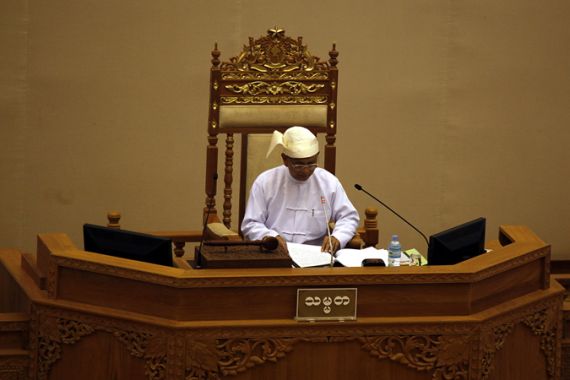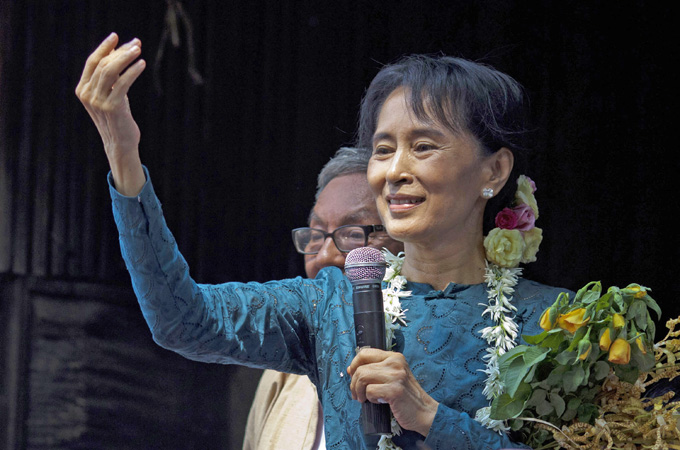State TV: Myanmar to free 6,300 prisoners
President Thein Sein announces amnesty to thousand of prisoners, but does not say how many are political detainees.

 |
| Opposition leader Aung San Suu Kyi was freed in November 2010 after seven straight years of detention [EPA] |
Reports say the Myanmar president has granted amnesty to more than 6,300 prisoners in what appears to be the biggest step so far in a series of reform actions undertaken by the new elected government.
A broadcast on state TV announced that President Thein Sein had agreed to the amnesty starting on Wednesday, which will be a religious holiday in Myanmar.
However, the announcement did not specify how many of those freed would be political detainees.
Estimated at 2,000, political detainees include journalists, pro-democracy activists, government critics and monks involved in anti-government protests in 2007 and members of Burma’s ethnic groups fighting for greater autonomy.
The announcement is a crucial step in liberalising measures implemented by the military-backed but elected government that took power in March.
Most prominent political prisoners are held in facilities far from the country’s main city of Yangon, a policy implemented under the previous military regime apparently to limit their ability to communicate through
visiting family members and lawyers.
Myanmar’s tightly controlled state newspapers had published an appeal on Tuesday morning for a release of political prisoners, a sign that the move had an official blessing.
The appeal in the three state newspapers, which closely reflect government positions, was an open letter from the government-appointed National Human Rights Commission calling on Thein Sein to grant an amnesty as a gesture of magnanimity.
Kurt Campbell, a senior Obama administration diplomat, said on Monday that the US had noted “dramatic developments under way” in Myanmar.
He said the US wanted to see concrete progress on issues like political prisoners, and if it did, the US would respond.
Western nations currently impose sanctions on Myanmar, and one of the key reasons is political prisoners.
Their release would be one of the clearest yet signs of reform by a new leadership that has reached out to critics including opposition leader Aung San Suu Kyi,freed in November after seven straight years of detention.
The new government, which came to power after controversial elections held a few days before Aung San Suu Kyi’s release, appears keen to improve its image and in August held the first talks between her and Thein Sein, a former general.